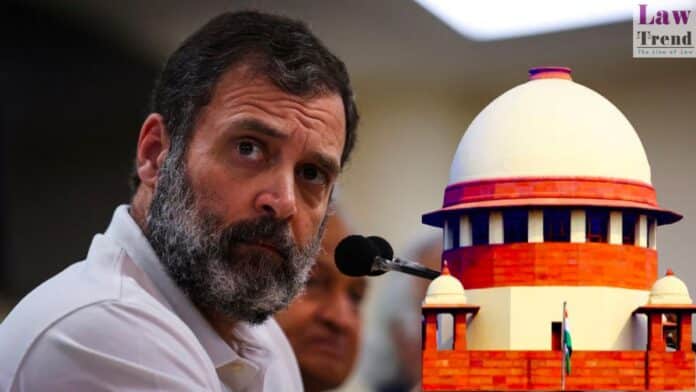The Supreme Court on Thursday extended till December 4 its interim order staying proceedings against Congress leader Rahul Gandhi in a criminal complaint alleging derogatory remarks against the Indian Army during his 2022 Bharat Jodo Yatra.
A bench of Justices M.M. Sundresh and Satish Chandra Sharma deferred the hearing after noting that a letter had been circulated seeking an adjournment.
Gandhi is before the Supreme Court challenging the Allahabad High Court’s May 29 order refusing to quash the trial court’s summoning order. The complaint, filed by Udai Shanker Srivastava in a Lucknow court, accuses Gandhi of making disparaging statements about the Army in the context of clashes with Chinese troops during his December 2022 yatra. The trial court had summoned him to face trial for the alleged offence of defamation.
On August 4, while issuing notice to the Uttar Pradesh government and the complainant, the Supreme Court stayed further proceedings in the trial court.
During that hearing, the bench had questioned Gandhi’s alleged statements, asking:
“How do you get to know that 2,000 sq km of Indian territory has been occupied by Chinese? Were you there? Do you have any credible material?”
The bench added, “Why do you make these statements without having any material? If you are a true Indian, you won’t say such a thing.”
Senior advocate Abhishek Manu Singhvi, appearing for Gandhi, told the Court that “it would be an unfortunate situation if the Leader of Opposition cannot raise issues.” He pointed to Section 223 of the Bharatiya Nagarik Suraksha Sanhita (BNSS), arguing that a prior hearing of the accused was mandatory before cognisance could be taken in a criminal complaint. According to him, this requirement had not been followed by the trial court.
Gandhi’s counsel before the trial court, advocate Pranshu Agarwal, had earlier argued that the allegations appeared “fabricated” on the face of the complaint. He also submitted that Gandhi is not a resident of Lucknow, and therefore the court should have verified the complaint’s assertions before issuing summons, and proceeded only if a clear prima facie case existed.
With the interim protection extended, the matter will now be taken up on December 4.




